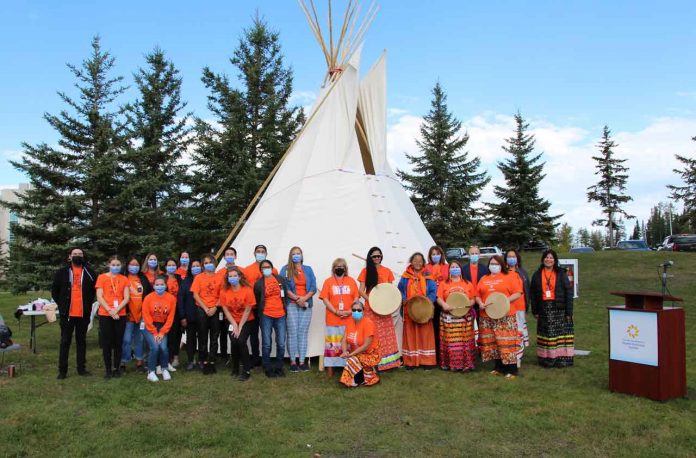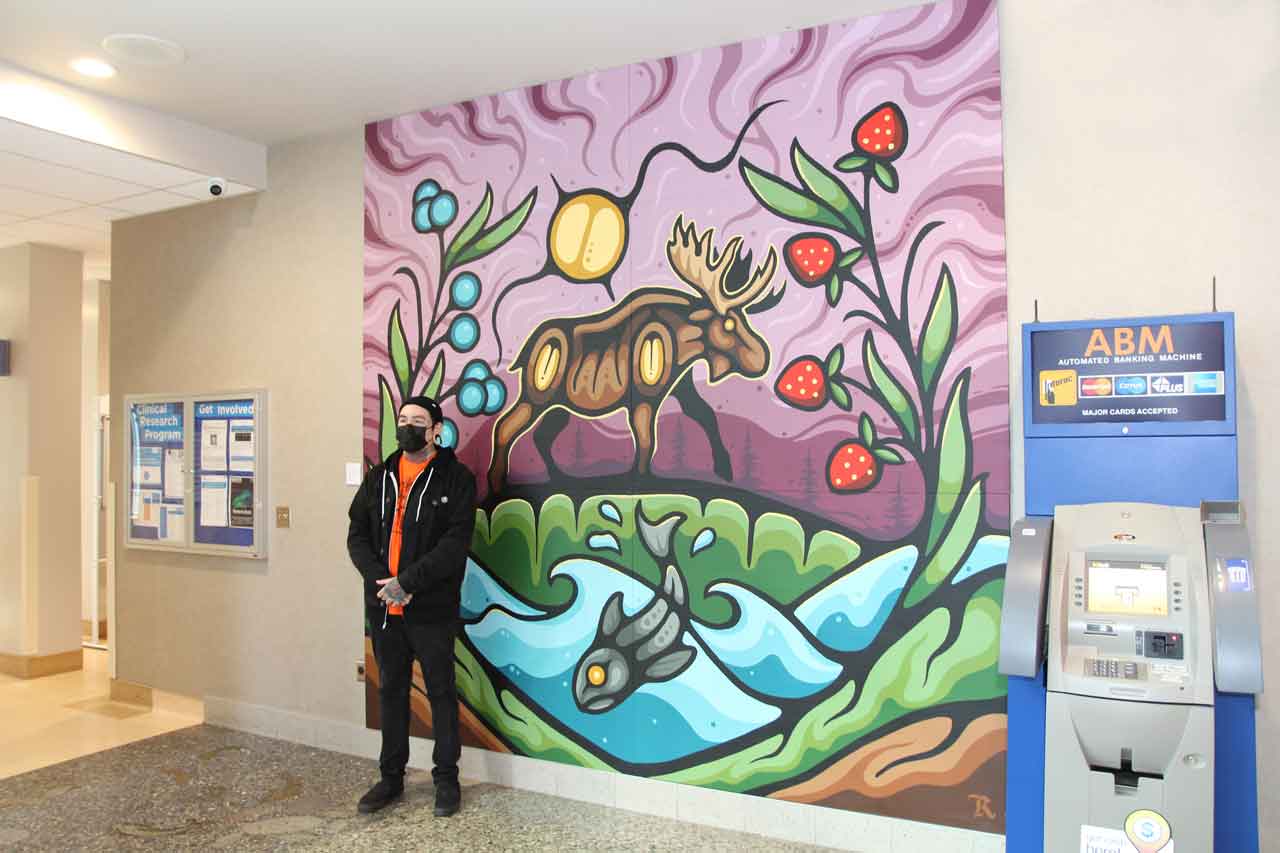
THUNDER BAY – NEWS – Thunder Bay Regional Health Sciences Centre (TBRHSC), joined by Elder Myria Esquega, drummers, and artist Ryan Pooman from Thunder Bay, commemorated the National Day of Truth and Reconciliation (also known as Orange Shirt Day).
“Today, we honour the lost children and survivors of residential schools, their families and communities. Public acknowledgement of the tragic and painful history and ongoing impacts of residential schools is a vital component of the reconciliation process,” said Dr. Rhonda Crocker Ellacott, President and CEO, TBRHSC and CEO, Thunder Bay Regional Health Research Institute. “We take our role in Truth and Reconciliation as a regional acute care provider very seriously, and have undertaken a number of initiatives to support healing and reconciliation.”
A pair of powerful symbols of the Hospital’s commitment have been unveiled today. The first, a newly raised, 20-foot tall tipi served as the backdrop as the National Day for Truth and Reconciliation began with singing and drumming by local women. Elder Myria Esquega (member of Fort William First Nation) led the ceremonial opening of the tipi with prayer and smudging with the sacred medicines, tobacco, sage, cedar and sweetgrass. “Having a tipi onsite at Thunder Bay Regional Health Sciences Centre is a culturally significant moment for our organization,” said Crystal Pirie, Senior Director, Indigenous Collaboration. “It symbolizes our Hospital’s commitment to supporting and enhancing Indigenous peoples’ healing journey while in our care.”

The Indigenous approach to health is to provide treatment for all aspects of oneself – the physical, mental, emotional and spiritual self to be able to fully heal. The tipi will serve as a safe cultural space that will allow for gatherings, ceremony, teachings and storytelling.
A large mural at the foot of the Grand Staircase was also unveiled today. Ojibwe artist Ryan Pooman (member of Fort William First Nation) was commissioned to create the ten foot by ten foot mural that welcomes patients, families, visitors and staff to the cafeteria. The bright, colourful image showcases traditional Indigenous foods from Northern Ontario.
Stephanie Rowan, Manager, Nutrition and Food Services/GM Sodexo Retail noted, “We are incredibly fortunate to have Ryan’s artwork at the entrance of the cafeteria for everyone to enjoy. The only request we had was that the art tie in food somehow, and other than that, we left it up to him. The end result is amazing, he is an exceptionally talented artist.”
“The events of today are just one step in developing the Hospital as a more culturally inclusive, safe space,” said Dr. Crocker Ellacott. “We recently launched our Strategic Plan 2026, were we identified Equity, Diversity and Inclusion as a key strategic priority for our organization. Providing care that honours our patient’s identity, background and experiences will improve health outcomes and quality of care. We are steadfast in our commitment to providing safe, quality and respectful care to Indigenous patients and all the other diverse populations we serve.”
Special thanks also goes out to the generous donors in our community who designate their donations directly to the Thunder Bay Regional Health Sciences Foundation’s Family CARE Grant program, which was instrumental in funding the construction of the tipi.







